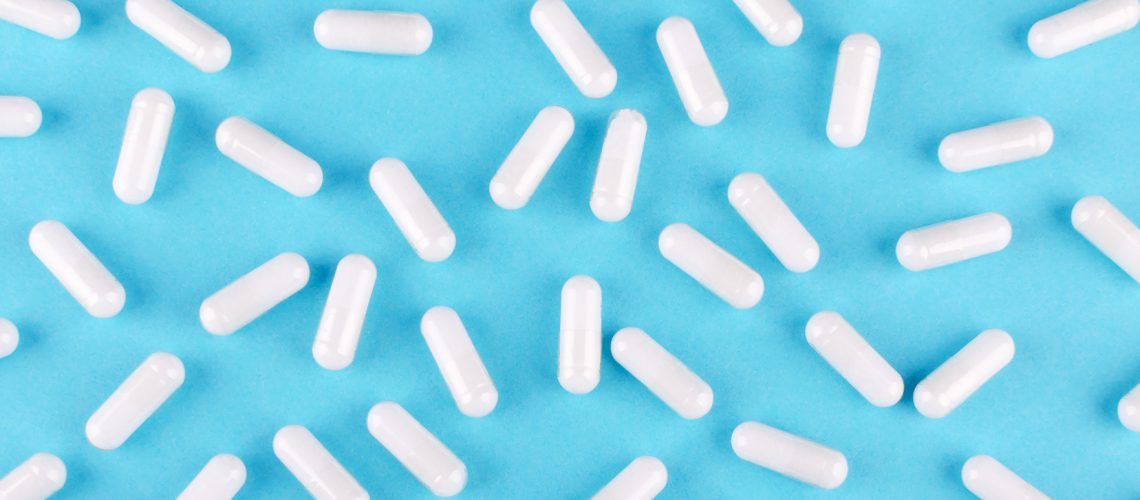Digest This
Click on the topics below to learn how probiotics can improve your digestive health, naturally.

Help Ease Your Anxiety with Probiotics
- Staff Writer
- Drug interactions, Mental Health, Probiotics
As our country watches the COVID-19 pandemic with apprehension, it’s no surprise that mental health specialists report a sharp increase in the number of anxiety and depression cases. A recent poll taken by the American Psychiatric Association indicates 36% ofAmericans said COVID-19 has made a serious impact on their mental health. If the physical isolation isn’t enough, the pandemic has escalated fears over potential job losses, bankruptcy, acute illness, and death.
Probiotic consumption has been a hot topic for research concerning the gut-brain axis in the past few years. The gut-brain axis (GBA) is the connection between the central nervous system (CNS) and the enteric nervous system (ENS.) That connection links the emotional and cognitive centers of the brain with our body’s intestinal functions. Recent research describes the important role gut microbiota play in these functions.
Probiotics protect against stress
That evidence suggests that probiotics can protect the body against the harmful physical and mental effects of stress. Conversely, it also suggests that probiotics can help regulate mood by keeping the gut microbiome balanced and performing optimally. That means if we want better mood and mental health, we need to take care of our guts.
However, gut bacteria can also be altered by stress, leading to suboptimal gut health. Moreover, other things can reduce the efficiency of our gut function such as antibiotics, intestinal infections, and poor diet – all of which can kill off beneficial or “good” bacteria. A lack of good bacteria in the gut has also been associated with other health problems such as leaky gut, irritable bowel syndrome, and Alzheimer’s disease.
Clearly, this evidence indicates we can’t achieve optimum health unless our guts are maintained at peak efficiency and fortifying our microbiota with probiotics may be a way to both fight and prevent anxiety and mood disorders.
How it works
The bacteria in our gut enhance our resilience to stressful situations by helping seal the gut barrier. When our microbiome is not balanced, its compromised, inefficient gut function can have a negative impact on our overall health (including mental health), due to leakage of hormones and intestinal inflammation.
If the gut lining stays porous for too long, it can allow toxins and toxic bacteria into our body, where some of those toxins can pass through the blood-brain barriers that protect the brain from these types of pathogens.
That’s how a balanced gut microbiome strengthens the gut lining, protects us against leaky gut, and reduces gut inflammation, which in turn plays a role in our mental well-being.
Inflammation also affects the central nervous system and can cause symptoms of depression; but conversely, depression can cause inflammation itself. That’s why having a robust, diverse microbiome is necessary to help control inflammation by strengthening the gut lining, and preventing unwanted toxins from entering the body.
Researchers report that people who suffer from anxiety often have symptoms of gastrointestinal (GI) disorders such as IBS, gas, and diarrhea. These ‘co-occurring disorders’ help cement the conclusions over the importance of the gut-brain axis and its role in many common illnesses.
The link between the gut-brain axis plays a critical role in how healthy we are, and an ever-increasing body of evidence strongly suggests that the microbiota in your gut influences every other aspect of your overall health – including our mental health. Simply put, it seems that now, more than ever, it’s impossible to maintain a healthy lifestyle unless our guts are happy and thriving, and everyone’s first step to better health should be to repair our guts. Consequently, dietary changes and probiotics are some of the methods researchers use to alter the microbiota in patients to help treat anxiety and depression.
Since microbiota has such an important impact on your entire body, it’s not surprising that taking probiotics for your mood doesn’t just benefit our mental health in one way. Probiotics may also help other precursors associated with an increased risk of anxiety:
- Helps reduce inflammation, and research suggests that depression may be an inflammatory disease
- Increases tryptophan, the happiness hormone, which stimulates natural serotonin production.
- Certain probiotic strains, like L. Rhamnosus, help reduce levels of the stress hormone corticosterone.
- Some strains of probiotics may possess inherent anti-depressant qualities.
Research on probiotics and the brain-gut connection continues, but the importance of this connection seems clear. Incorporating more probiotic foods in your diet, is a great step to achieving robust overall health. Unfortunately, our fast-paced lifestyles and the ever-present temptations of industrialized food make eating well-balanced, healthy meals hard. The easy answer to that is to help our guts with a probiotic supplement like an EndoMune Probiotic. Try one today – your body and your mental health will thank you.
There Is An Endomune Probiotic For Every Lifestyle
-
EndoMune Metabolic Rescue
$44.95 -
EndoMune Advanced Probiotic
$42.95 -
EndoMune Companion Pack
$112.93








